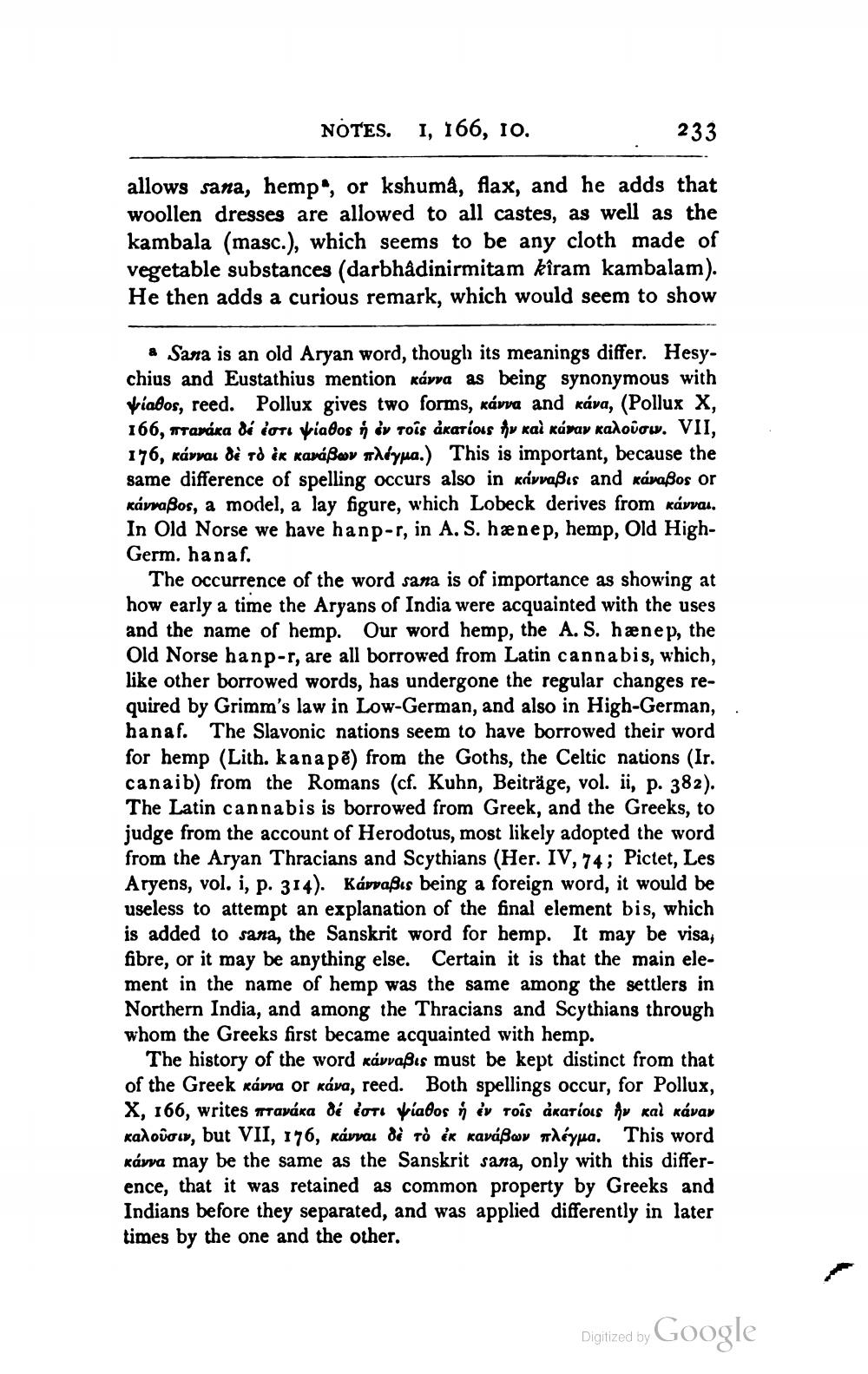________________
NOTES. I, 166, 10.
233
allows sana, hemp, or kshumà, flax, and he adds that woollen dresses are allowed to all castes, as well as the kambala (masc.), which seems to be any cloth made of vegetable substances (darbhådinirmitam kîram kambalam). He then adds a curious remark, which would seem to show
& Sana is an old Aryan word, though its meanings differ. Hesy. chius and Eustathius mention Káva as being synonymous with viados, reed. Pollux gives two forms, kárva and káva, (Pollux X, 166, πτανάκα δέ έστι ψίαθος ή εν τοις ακατίοις ην και κάναν καλούσαν. VΙΙ, 176, kávval di td ek kaváßen Méyua.) This is important, because the same difference of spelling occurs also in kávvapıs and cáraßos or kávvapos, a model, a lay figure, which Lobeck derives from kávvai. In Old Norse we have hanp-r, in A. S. hænep, hemp, Old HighGerm. ha naf.
The occurrence of the word sana is of importance as showing at how early a time the Aryans of India were acquainted with the uses and the name of hemp. Our word hemp, the A. S. hænep, the Old Norse hanp-r, are all borrowed from Latin cannabis, which, like other borrowed words, has undergone the regular changes required by Grimm's law in Low-German, and also in High-German, hanaf. The Slavonic nations seem to have borrowed their word for hemp (Lith. kanape) from the Goths, the Celtic nations (Ir. canaib) from the Romans (cf. Kuhn, Beiträge, vol. ii, p. 382). The Latin cannabis is borrowed from Greek, and the Greeks, to judge from the account of Herodotus, most likely adopted the word from the Aryan Thracians and Scythians (Her. IV, 74; Pictet, Les Aryens, vol. I, p. 314). Kávvapıs being a foreign word, it would be useless to attempt an explanation of the final element bis, which is added to sana, the Sanskrit word for hemp. It may be visa, fibre, or it may be anything else. Certain it is that the main element in the name of hemp was the same among the settlers in Northern India, and among the Thracians and Scythians through whom the Greeks first became acquainted with hemp.
The history of the word kávvaßis must be kept distinct from that of the Greek káva or káva, reed. Both spellings occur, for Pollux, X, 166, writes traváka dé doti viados év rois åkarious kal káva Kalowow, but VII, 176, kárvau di tò ék kaváßww aléyua. This word káva may be the same as the Sanskrit sana, only with this difference, that it was retained as common property by Greeks and Indians before they separated, and was applied differently in later times by the one and the other.
Digitized by
Digized by Google




